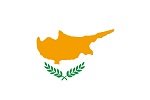SPAIN CYPRUS PORTUGAL DUBLIN LONDON
Q's + A's
REAL CREST GROUP
Homes - Mortgages - Currency
SPAIN BUYING GUIDE
IS IT EASY TO QUALIFY FOR MY NEW HOME MORTGAGE IN SPAIN?
Generally speaking, a mortgage of 60% – 70% should be available (subject to status) meaning a deposit of around 30% – 40% would be required. The bank may consider certain other factors like your salary, together with any savings or borrowings you may have on your family home (mortgage) or other assets (e.g) investment properties (etc) They may also run a check on your credit history.
COULD I GET A MORTGAGE TO PURCHASE ANY PROPERTY IN SPAIN?
Basically, yes but some rural properties may well be more difficult to secure the mortgage on (e.g.) some banks may have a policy of not offering finance on any property in excess of 15km inland, preferring to loan on coastal properties only.
GENERALLY, WHAT ARE THE FEES LIKE WHEN I’M BUYING IN SPAIN?
This always depends on the value and it will variy from around 10% – 12% of the purchase price. Briefly this will consist of ‘transfer tax’ of between 8% – 10% and your legal representative who will charge a maximum of 1% (plus IVA at 21%). In addition, there will be land registry and Notary fees at approximately 0.35% of the purchase price. With all this in mind the total amount will not exceed 10% – 12%.
WHAT ARE MANDATORY DOCUMENTS REQUIRED TO BUY IN SPAIN?
Before proceeding to complete your property purchase an NIE number must be obtained. The NIE is a registration number system for foreigners, and it will be necessary to purchase any property or motor vehicle. You will also need an NIE number to open a bank account or have the utilities connected at your property. An NIE number is easily obtained by contacting a local ‘Gestor’ who will make your application. Also available from some police stations, costing about €20.
COULD I BUY MY HOME WITHOUT USING A LEGAL PROFESSIONAL?
Yes, however we would strongly advise that you use a qualified solicitor (or) legal representative. This would be considered quite important. It ensures that you are purchasing the property with a clear unburdened title, as all the correct searches will be conducted on the title deeds prior to attending and signing at the Notary.
USUALLY, WHAT ARE THE STAGE PAYMENTS INVOLVED IN BUYING?
Normally, upon an offer being accepted €3,000 euros holding deposit is required to render that property taken off the market, typically for a period of 3 – 4 weeks. Then a private contract is signed between buyer/s and seller/s which confirms a purchase price. At this point a (non-returnable) 10% deposit is then payable over to the vendor/s. Then (under normal circumstances) the final balance is payable to the vendor/s approximately 4 – 6 weeks later, with all the parties attending the Notary to sign. (at times this timescale may be negotiated between the parties)
WILL THERE BE ANY UNPAID DEBT ON MY NEW HOME AFTER I BUY?
As part of the purchasing process and before the signing of the contract, we will apply for various paperwork that will confirm there are no legal charges present against the property. The buyer’s solicitor will also make similar checks ensuring the title is clear of any liens or outstanding debts etc. If you are drawing down a mortgage on the property, the bank will also undertake their own title searches.
IS MY PROPERTY STILL ‘FOR SALE’ AFTER I’VE PLACED MY DEPOSIT?
As mentioned above, a €3,000 euros reservation deposit is paid to ensure the property is taken off market temporarily for 3 – 4 weeks (or for a period of time) agreed by both the buyer/s and seller/s. During this agreed period the buyer/s solicitor will prepare the ‘Compraventa’ (contract of sale) in conjunction with the sellers/s, purchaser/s (and their bank, if buying with a mortgage) and ourselves.
HOW ARE THE UTILITIES TRANSFERRED AFTER I’VE PURCHASED?
Responsibility of transfer of utility accounts like water, electricity, telephone (etc) is for the buyer`s solicitor to complete. Meter readings need to be taken on actual date of sale and submitted to the utility companies, with a new account opened in the name of the new purchaser/s. Payments will then be made by direct debit.
ARE THERE PROPERTIES FOR SALE WITH THE FURNITURE INCLUDED?
Some properties will come to the market with furniture and white goods included. This always needs to be agreed between seller/s and buyer/s prior to the signing of a private contract. If included an inventory of all such contents is attached and this is signed by both the buyer/s and seller/s, forming part of the contract of sale.
WILL I HAVE TO PAY ‘COMMUNITY FEES’ (or) ANY OTHER CHARGES?
Yes, urbanisation charges (sometimes known as community fees) may vary, this will also depend on the size of the actual property and/or some other factors such as facilities (gym, swimming pools etc) available to residents on the urbanization.
WHAT ARE THE NORMAL ONGOING COSTS AFTER MY PURCHASE?
If you buy a property on an urbanisation there will be annual community fees. as set out by the management company responsible for maintaining all the facilities. All property owners are also required to pay their annual property taxes and ‘IBI’. These are the local taxes set out by the town hall for providing utility connections, refuse removal, street lighting (etc) All property owners have to pay these taxes.
COULD I BE REPRESENTED BY MY POWER OF ATTORNEY IN SPAIN?
Yes, a purchaser can assign another person to represent them in signing any documents on their behalf. Usually, this important task will be assigned to their solicitor or legal representative and it means that the purchaser/s themselves do not necessarily have to travel abroad to complete their purchase. The assigned Power of Attorney will go to Notary, signing all documents on behalf of buyers.
SO HAVE I TO TRAVEL TO SPAIN MYSELF TO EXCHANGE CONTRACTS?
No, this can be done remotely from your country of residence by bank transfer (or) placing your solicitor or legal representative in funds in advance of exchange.
I’M BUYING TO RENT OUT, WHAT TYPE OF RETURNS COULD I EXPECT?
Our team will be quite happy to evaluate your property purchase (v) the potential rental returns achievable from it, and before you commit to the actual purchase.
SPAIN SELLING GUIDE
WHAT ARE THE COSTS LIKE IF (or) WHEN I’M SELLING UP IN SPAIN?
It should be approximately +/-10% but could be a little bit more depending on the length of your ownership and whether the seller/s are resident or non-resident in Spain. Capital Gains Tax (CGT) may be payable at either the residents (or) non-residents rate. Total costs will usually comprise of (1) the estate agency fees (2) solicitors (or) legal advisors fees and (3) CGT or ‘plus valia’ tax which is a form of capital gains tax. It’s recommended that you seek professional advice before you begin the process of selling, in order to estimate or predict all the costs involved.
WILL I NEED TO ENGAGE MY OWN SOLICITOR OR ADVISOR TO SELL?
You are not obliged by law to do so, however many vendor/s do prefer to use a solicitor (or) legal representative. This eliminates the possibility of any unintended and costly errors during the selling process. Peace of mind too for the seller/s.
DO I NEED TO HAVE AN ENERGY PERFORMANCE CERTIFICATE (EPC)?
As from 01 June 2013 it is mandatory now for any property being sold to have an Energy Performance Certificate (EPC). The sales agent must also advertise that EPC rating when marketing your property. Usually, the sales agent will arrange to have an EPC report completed professionally, on behalf of seller/s before a sale.
WILL I NEED TO FULLY INFORM MY OWN BANK IF I’M GOING TO SELL?
Of course. If your property is subject to any mortgage or other loans attached to it then yes, this is very important. Sale of the property cannot take place as long as any mortgage or loan is still secured on it. The bank will have to notify the Notary in advance of signing the title deeds and also be present at the signing. Then at that point any portion of the outstanding mortgage is paid back direct to the bank.
COULD I SELL MY PROPERTY IF I HAVE UNPAID IBI (or) OTHER TAXES?
No. All taxes and municipal charges must be brought up to date prior to signing of the title deeds. There will be various paperwork applied for by either us or the buyer`s solicitors / legal representative. These documents will reveal whether or not there are any outstanding charges (or) unpaid municipal taxes outstanding against the property being sold. All such taxes or debts have to be cleared first.
WILL THE SALE OF MY HOME BE SUBJECT TO CGT (or) OTHER TAXES?
This depends on whether you are a fiscally resident or non-resident. Put briefly, fiscal residents selling their primary residence will have their CGT rolled over on to their new property. Non-residents however will have to pay a 3% withholding charge, and this is irrespective of whether there is a taxable gain or not. Under certain circumstances this can be later recovered. Otherwise, capital gains tax is payable at circa 21%. A professionals advice is recommended in these matters.
WHAT IS MEANT BY ‘PLUSVALIA’ TAX AND WHO WILL PAY THIS TAX?
The vendor/s are obliged to pay this tax. It is based on the Catastral value of the land that the actual property occupies and so this tax is always set by the Town Hall ‘Ayuntamiento’ who will regularly review all land values in their general area.
*Please note the CREST GROUP are not tax advisors and so all information above relating to taxes should only be used for guidance, and not definitive in law. A Gestor, Solicitor or other legally qualified person/s should always be consulted to provide accurate advice on important issues like taxes.
Real Crest Group are an International Realty with Investment Property expertise in Spain, Portugal, Cyprus, Greece and UK. Contact Real Crest Group (UK) on +44 (0)788 1880 400 or (IE) +353 (0)85 123 2288 Email: Hello@CrestSelect.Com
powered by Realex1.Com
Dream Homes In The Sun
Villas Apartments Townhouses
Real Crest Group





